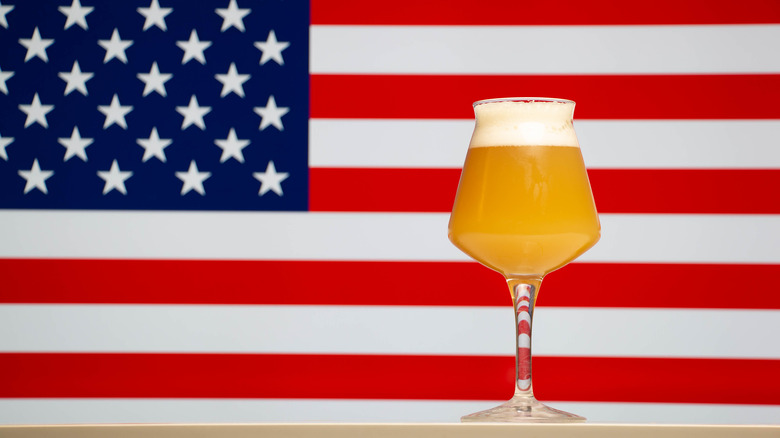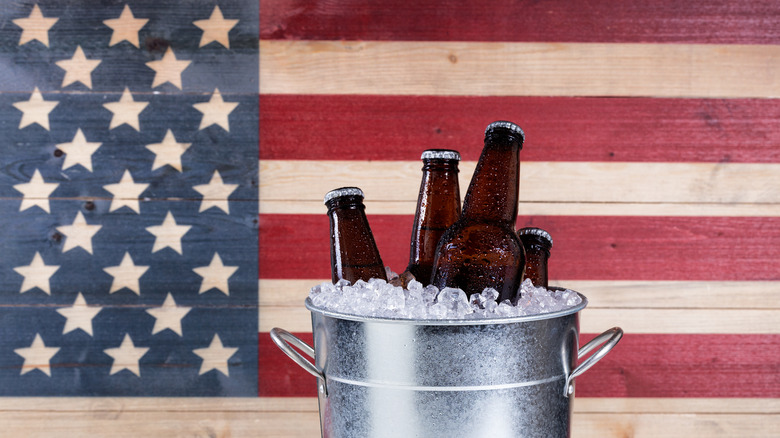How A Drinking Song Inspired The Star-Spangled Banner
If you celebrate the Fourth of July by grilling out, there's a good chance a few iconic drinking songs are already on your cookout playlist. At a first glance, Garth Brooks' "Friends in Low Places" or "Tequila" by The Champs might not seem like the most fitting songs to crack open a cold one to at your patriotic barbecue –- but, think again. Even the Founding Fathers were doing it.
On September 13, 1814, Francis Scott Key (the future writer behind "The Star-Spangled Banner") was a 35-year old American lawyer, according to the Smithsonian. That year saw the infant nation and the United Kingdom locked in the continuing War of 1812. September 13, however, was the day of the barrage of Fort McHenry in the Baltimore Harbor — an event Key himself watched unfold from afar while held in captivity by British forces. The U.S. won the battle in an unexpected underdog victory, and Key wrote down detailed descriptions of the event. This eyewitness account is responsible for such iconic lyrics as "the rocket's red glare," "the bombs bursting in air," and other battlefield descriptors.
The anthem is a joyful, triumphant celebration of victory in battle — but, that's not all. Key composed some rousing, patriotic lyrics, but he borrowed the melody for his poem from another tune that ruffled more than a few powdered wigs. That's right — "The Star-Spangled Banner" was inspired by a drinking song.
Pour one out for Francis Scott Key
In a bitingly ironic twist, the American national anthem was inspired by "To Anacreon in Heaven," a drinking song popular in bars in — you guessed it — England (via History). The story goes that Englishman John Stafford Smith wrote the drinking song around 1775 –- just one year before America officially became a country in 1776 (per Reference). Smith wrote the song in honor of the wine-loving Greek poet Anacreon. When Francis Scott Key penned the anthem of his new nation, he borrowed Smith's melody.
Not all Americans adopted the anthem enthusiastically, at first. "To Anacreon in Heaven" featured socially taboo lyrics with alcohol and lust at the focal point. One lyric proclaimed, "I'll instruct you like me to entwine the myrtle of Venus with Bacchus's wine," via the American Battlefield Trust. The interrelatedness of the new country's proud national anthem with a gauche drinking song wasn't everybody's cup of tea. (Pun intended. Insert Boston Harbor joke here.) But, clearly, the melody stuck. Cheers to the red, white, and blue.

